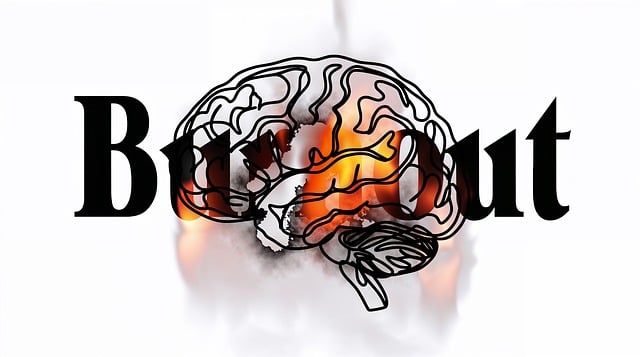Arvada EMDR therapy, an effective trauma memory processing method, can be integrated into community outreach programs alongside traditional mental wellness coaching for improved accessibility and overall mental health. Evaluating policies should focus on impact assessment using key indicators like reduced wait times, higher client satisfaction, and better access to specialized services. Advocacy plays a crucial role in shaping policies, promoting equitable care for niche treatments like Arvada EMDR, through community engagement, education, workshops, and policy collaboration. Comprehensive Mental Health Education Programs addressing local challenges, including stress management workshops, empower individuals and reduce the burden on mental health services.
Mental health policy analysis and advocacy are essential components in fostering a healthier society. This comprehensive article delves into critical aspects of mental well-being, including policy understanding, therapeutic approaches like EMDR (a key focus for Arvada EMDR Therapy), and measuring impact. We explore effective advocacy strategies to enhance access to quality mental health care. By examining these elements, we aim to illuminate paths towards improved mental health support and overall well-being.
- Understanding Mental Health Policy: A Foundation for Advocacy
- The Role of EMDR Therapy: Unlocking Healing Potential
- Analyzing the Impact: Measuring Success and Identifying Gaps
- Effective Advocacy Strategies for Improving Access to Mental Health Care
Understanding Mental Health Policy: A Foundation for Advocacy

Understanding Mental Health Policy forms the very foundation upon which effective advocacy is built. It’s crucial to grasp the intricate web of regulations, guidelines, and programs that shape access to mental health services, treatment options, and support systems within a community or nation. By delving into these policies, advocates can identify gaps, challenges, and areas for improvement. This involves navigating complex bureaucracies and staying informed about legislative changes related to mental wellness coaching programs development, resilience building, and more.
For instance, consider the impact of evidence-based practices like EMDR therapy in Arvada, CO. Understanding policy surrounding such therapeutic approaches ensures advocates can promote increased availability and reimbursement for these life-changing treatments. Effective advocacy requires a deep understanding of where policies intersect with mental wellness, allowing for strategic interventions to enhance overall mental health outcomes.
The Role of EMDR Therapy: Unlocking Healing Potential

EMDR Therapy stands out as a powerful tool in the arsenal of mental health treatments, especially relevant in Arvada EMDR therapy practices. This therapeutic approach, short for Eye Movement Desensitization and Reprocessing, facilitates healing by helping individuals process traumatic memories and experiences. By combining guided eye movements with recall of distressing events, EMDR enables patients to unlock repressed emotions and beliefs associated with these memories.
This process, over multiple sessions, allows for reframing of negative perceptions into more adaptive and healthy responses, thereby enhancing overall mental wellness. Community outreach programs that integrate such innovative treatments, alongside traditional Mental Wellness Coaching Programs Development, can significantly impact individuals’ ability to manage stress and improve their quality of life. Effective community outreach program implementation ensures accessibility to these life-changing therapies, fostering a healthier, more resilient population.
Analyzing the Impact: Measuring Success and Identifying Gaps

Evaluating the effectiveness of mental health policies requires a meticulous process of analyzing impact and measuring success. This involves assessing key indicators such as reduced wait times for therapy, improved access to specialized services like Arvada EMDR Therapy, and enhanced client satisfaction rates. By comparing these metrics against established benchmarks, policymakers can gauge the tangible benefits of their initiatives.
Identifying gaps in mental healthcare is equally crucial. This includes pinpointing disparities in service delivery, such as unequal access to care for marginalized communities, and assessing whether existing policies adequately address rising trends like anxiety disorders or substance use issues. Incorporating self-awareness exercises and mental illness stigma reduction efforts can foster a more inclusive environment while promoting cultural sensitivity in mental healthcare practice.
Effective Advocacy Strategies for Improving Access to Mental Health Care

Advocacy plays a pivotal role in shaping mental health policies and ensuring equitable access to care. When pushing for improvements in mental health services, particularly focusing on niche areas like Arvada EMDR Therapy, strategic approaches are key. One effective strategy involves community engagement; organizing awareness campaigns and educational programs can help destigmatize mental illness. By bringing mental health issues into the open through workshops, seminars, and community events, advocates create a supportive environment where individuals feel comfortable seeking help. This approach not only educates but also empowers folks to take charge of their well-being.
Additionally, advocacy groups should collaborate with local organizations, healthcare providers, and policymakers to design comprehensive Mental Health Education Programs. These programs can offer valuable insights into the unique challenges faced by different communities, leading to more tailored interventions. Incorporating Stress Management Workshops as part of these initiatives equips individuals with coping mechanisms, fostering resilience and potentially reducing the burden on mental health services. Through such organized efforts, advocates can drive meaningful change, ensuring that quality mental health care becomes accessible to all.
Mental health policy analysis and advocacy are vital components in ensuring accessible and effective care, such as that offered by Arvada EMDR Therapy. By understanding policy foundations, leveraging therapeutic techniques like EMDR, measuring impact, and employing strategic advocacy, we can navigate the complex landscape to create a more supportive mental health environment for all. These efforts collectively foster a symphony of care that resonates with those in need, revolutionizing their journey towards healing and well-being.












